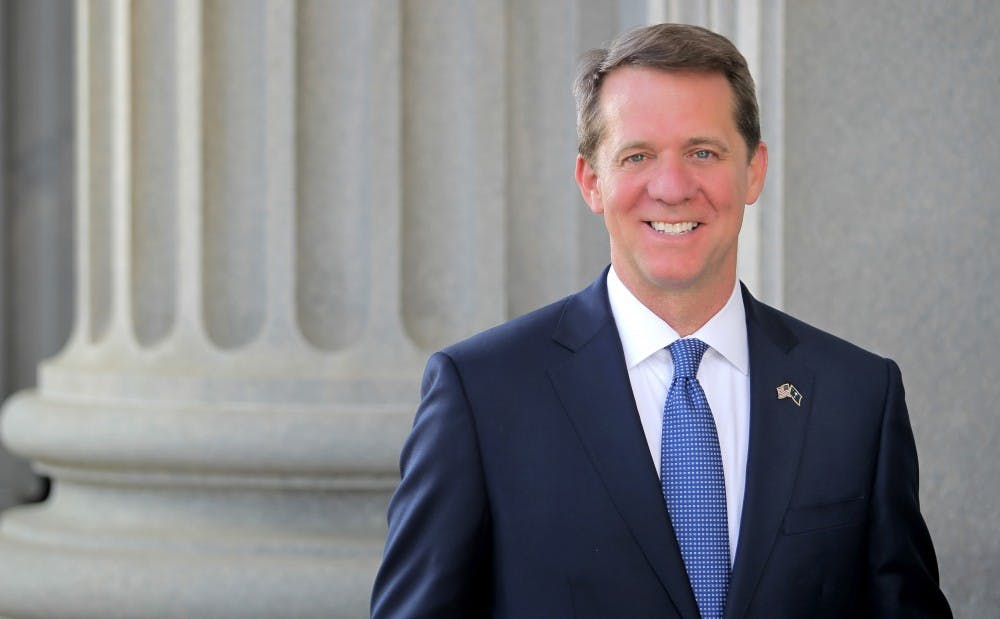In the midst of any major election season, information overload becomes the status quo. Trite political campaign ads, targeted sponsored social media posts and a never-ending news cycle create a sense of political urgency. With under two weeks left until the election, all eyes are on the two major gubernatorial candidates: incumbent Gov. Henry McMaster and Rep. James Smith. If Smith defeats McMaster in the Nov. 6 midterm, he would be the state's first Democratic governor in almost two decades.
Smith is a longtime political vet and secured the Democratic nomination in June with 62% of the votes. His major issues include affordable health care, educational funding and job opportunities within the state. Smith says that funding for higher education and technical education statewide will motivate to more major corporations, such as Michelin, Boeing and Sonoco, to settle in South Carolina.
In August, global tech and consulting firm Capgemini announced hundreds of job opportunities available for South Carolinians, the largest announcement of tech jobs in the state in the past 10 years. For Smith, this is just one example of what he hopes to see for the future of South Carolina’s economic development.
“The way we're going to be successful is not just about incentives, but it's showcasing what our institutions of higher education are doing and can do to deliver the educated workforce,” Smith says.
Smith says that educational funding will also encourage South Carolinians to stay in the state.
“Too many young folks find themselves getting out of school with a huge amount of debt and not enough economic opportunity. We're going to change that,” he says.
This focus on funding for higher education is only one part of a three-pronged approach Smith says will bring more jobs to South Carolina. He is focused on connecting businesses with residents and increasing the quality of life for South Carolinians through the preservation of the state’s resources.
“I've worked hard to protect the character of communities through historic preservation credits, through abandoned building revitalization credits, and all these things that enable our city centers and towns to sort of renew themselves in ways that make them an attractive place to live,” Smith says.
Scott Harriford, a 2016 USC graduate, worked as a State House page during his final year of college. This is where he met Smith, who at the time was running for the District 20 Senate seat. Harriford started working for Smith shortly after this and became the candidate’s personal driver and assistant.
He can attest to the often much too common reality that many college students face – graduating from university to find few career options in an increasingly thin job market.
“I started working in the State House with the intent of networking trying to get into politics, but session started to wind down and I didn't really have any leads I had to start looking for other jobs,” Harriford says. “There weren't many jobs that worked for me, as far as pay and opportunities in Columbia, so I had to look outside of the state,” Harriford says.
He eventually found a job working for Dell in Nashville.
“I had to make a game-time decision on whether I wanted to stay here and pursue this job or go to Nashville. It took a couple days, but I made the right decision and decided to stay here,” he says.
Now, Harriford serves as Smith’s deputy political officer and right-hand-man.
“I'm with James pretty much every day,” Harriford says. “I get to travel the state, and being from South Carolina, I thought I knew the state pretty well, but we would get off the main highways into some of these smaller counties where you really get to see the true fabric of South Carolina. It's been an amazing experience.”
Prior to working as a State House page, Harriford had no other political experience, except for a brief leadership position under Student Government. Today, he emphasizes the importance of student involvement, or at the very least awareness, of local politics and news.
“And as you move out of your parents' house and are on your own, there are a lot of outside factors that you don't realize that politicians can actually help you with,” he says.
Local politicians can create or endorse a number of policies that impact college students directly, like access to contraceptives, safety on college campuses and affordable energy rates. When he was a student at USC, Smith remembers the disconnect between students and campus safety officers.
“It often seemed like they were pursuing underage drinking when the real threats seemed to go undealt with,” Smith says.
In order to remedy this disconnect, Smith advocates for increased communication channels between university students and local lawmakers.
Beyond policies and procedures, the governor is a key representative of the state – on both a local and national stage. They represent the morals, beliefs and ideals of a state and its citizens. Regardless of whether you’re originally from South Carolina, or have found a temporary home here for four years, the next governor of the state can directly impact your daily life. This election matters.



